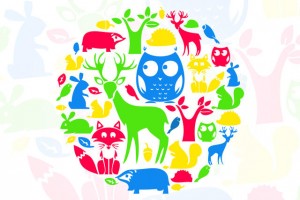Imagine living in a place where elephants are not only outside your front door but are your family’s main income source as well as an essential part of your cultural identity. This is the reality for many people in places like Thailand as well as Myanmar, India, Sri Lanka, Cambodia and Vietnam. All these countries have a tradition of elephant keeping, which expert Patricia Sims calls “mahout culture.”
“I know, there are no elephants in Boulder,” Sims, a well-known producer, writer and director of documentaries said. “But elephants are as much a part of this world as we are. They belong here as much as we do and by losing elephants or any other animal, we are losing a part of ourselves.”
She has been working on a documentary called “Elephants Never Forget” for four years, exploring the mahout culture as well as the issues negatively impacting Asian elephants regardless of the fact that they live in places like Thailand where she said, “the elephant is loved the most.” Even in Thailand, the threat of extinction exists. Like African elephants, Asian elephants are susceptible to illegal poaching that radically reduces their populations and eliminate a vital link in ecosystems that fuel the rest of the world, she said.
“They are a keystone species, moving and shaping the environment,” Sims said. “They find water, they move trees, they make pathways in the forest. If they are taken out of this system, the system topples.”
In a previous article, I discussed massacres of African elephants. Unfortunately, the story does not end in Africa because the Asian elephant is also at risk.
The Asian elephant, often associated with circus acts and piggyback rides at the zoo, faces human impact intertwining with similar threats of the African elephant.
“The tusk has become like a currency and it’s fueling a lot of different [illegal] activities,” Sims said of Africa. “Not just appeasing the consumer market in China, but also driving the purchase of arms for various militant groups.”
Because of those illegal activities, according to Sims, “you see a loss of a kind of traditional relationship in Africa.”
The deterioration of the human-animal relationship has been a tragedy in Africa. In Asia, however, the elephant is a living icon and remains an important “beast of burden” to the economy as well as the people Sims said. But elephants in Asia face their own issues. They are disappearing from the wild because of habitat loss and because “elephants have become a commodity,” Sims explained, and like many commodities, they are being exploited.
Young elephants are being illegally poached from the wild and sold into the tourism trade. Often, the family of the elephant, or its group, is killed because any elephant past six years is too big, dangerous, and hard to train, Sims said. That issue is the backdrop to the documentary that also explores, “a very simple relationship that’s been in this culture for thousands of years,” Sims said. It’s a relationship between a young man and an elephant who are beggars on the street of Thailand.
Right now, Thailand is facing “a collision of worlds between traditional values and modern society.” This collision is explored in her documentary.
“The film will bring a lot to light around these complex issues affecting elephants, not just in Thailand, but around the world,” Sims said. “It is all linked together, especially with the escalation of the ivory trade.”
Aside from the documentary, Sims expounded on the illegal ivory trade occurring in Africa and being exported through places like Thailand. This exportation is possible because Thailand still has a legal ivory trade, and as Sims said, no one can tell the difference between illegal African ivory and legal Asian ivory.
Sims said the consumerism of black market ivory has gotten out of control primarily because the Chinese, who care more about about ivory than elephants, are poaching in Africa.
The modern sentiment in Thailand is overriding its traditional ideals. One day soon, these demands will result in a landscape as empty of elephants as parts of Africa already are.
“I may never see a tiger in the wild, but I want to know that somewhere in the world there is a tiger,” Sims said. “He’s out there doing his tiger thing and living in his tiger world and I don’t need to go and see that tiger. I just need to know that he’s there and he’s okay. That’s the same everywhere, the same with elephants, too. Because we are all in this relationship together.
To learn more about “Elephants Never Forget” and donate to Sims’ cause, click here.
Contact CU Independent Columnist Kitty Winograd at Katrina.winograd@colorado.edu.

